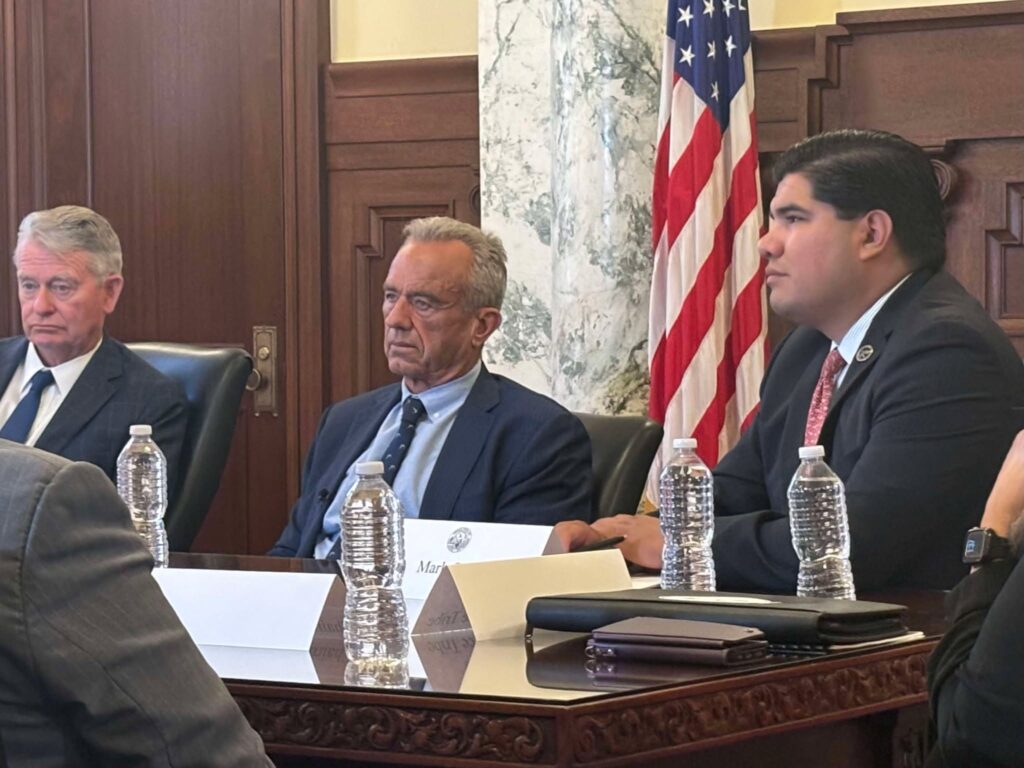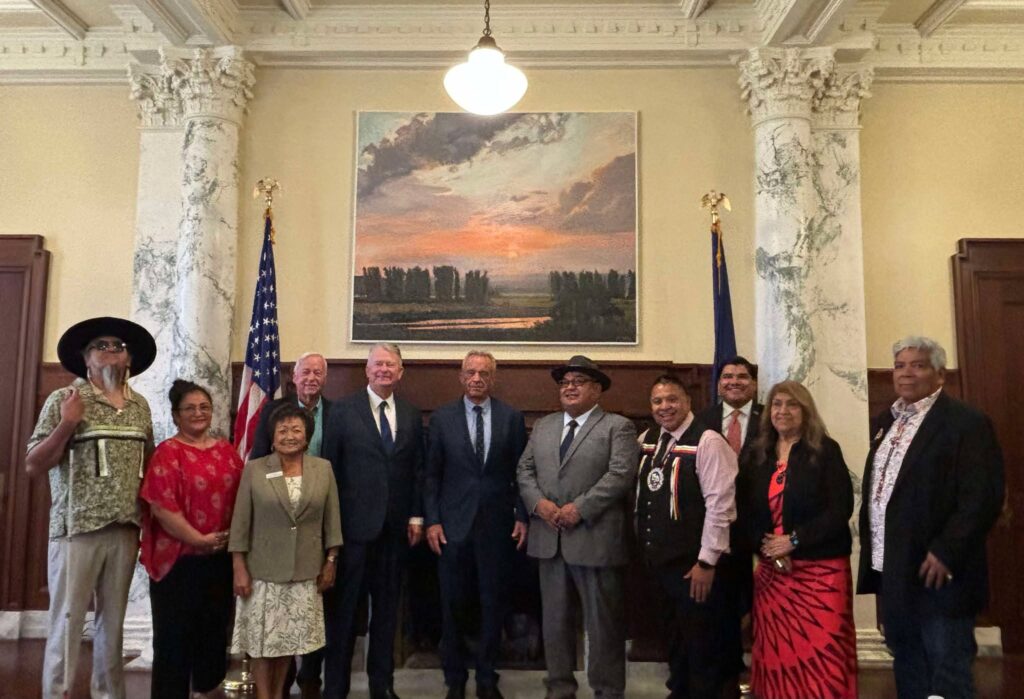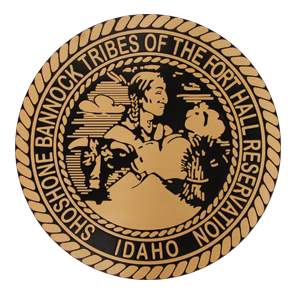Robert F. Kennedy Jr. accepts a gift from Fort Hall Business Council Treasurer, Ladd Edmo, on behalf of the Shoshone-Bannock Tribes, which features a collage of photos from his father, Robert F. Kennedy Sr’s visit to Fort Hall in 1968.
By ROSELYNN YAZZIE
Office of Public Affairs
BOISE – Fort Hall Business Council Treasurer Ladd Edmo addressed critical health care and behavioral health issues in Indian Country during a Tribal roundtable with U.S. Health and Human Services Secretary Robert F. Kennedy Jr. and Idaho Gov. Brad Little on July 23.
The discussion brought together leaders from the Shoshone-Bannock, Nez Perce, Coeur d’Alene, and Shoshone-Paiute Tribes to speak directly with federal officials about pressing health challenges in their communities.
Edmo opened his remarks by recognizing the long-standing relationship between the Kennedy family and the Shoshone-Bannock Tribes, referencing a 1968 visit to Fort Hall by the late Robert F. Kennedy Sr.

He then turned to the urgent crisis in the Indian Health Service (IHS), where staffing shortages have become so severe that staff are being pulled away from their clinical duties to perform tasks like janitorial work and further limiting patient care. The impact is profound and can lead to delayed diagnoses, worsening preventable diseases, and rising health care costs.
On behavioral health, Edmo emphasized the need to protect critical funding for the Substance Abuse and Mental Health Services Administration (SAMHSA), which supports services like medication-assisted treatment (MAT), peer recovery support, and youth prevention programs.
“This was mentioned by other council members, too. We all deal with similar issues like diabetes, alcohol, and substance abuse,” Edmo said. “With little or no funding for healthcare or even education, we’re falling short of our goals.”
He called for greater integration of traditional healing practices with modern medical care and advocated for a coordinated, multi-agency response to the opioid crisis. This would involve not only HHS but also the Department of Justice, Housing and Urban Development, the Centers for Disease Control and Prevention, and other government agencies.
Suicide remains the second leading cause of death for Native youth in the region, yet access to inpatient behavioral health treatment remains limited.
Edmo also voiced concern about proposed HHS reorganization efforts, cautioning that consolidating services may reduce access to staff who understand Tribal communities and their unique needs.

He urged that Tribal voices be included in all reorganization decisions and called for continued investment in Tribal Advisory Committees. He also recommended the creation of a comprehensive guide to all HHS programs that support Tribes, as well as an analysis of how Tribal funding sources are interrelated to prevent gaps in service.
“Meetings like this are valuable, even when we don’t see eye to eye,” Edmo concluded. “We all benefit when we take the time to listen, learn, and work together to better serve our people.”
To that end, he submitted a summary report to Secretary Kennedy’s advisors outlining key behavioral health policy recommendations. These include protecting and preserving SAMHSA funding; supporting flexible, non-competitive grants for Tribes; partnering with Tribes to build a youth treatment center in the Northwest; and recognizing and funding traditional healing as part of comprehensive care.
Other Tribal leaders raised additional concerns. Nez Perce Chairman Shannon Wheeler spoke about the importance of protecting first foods and the trauma caused by dietary changes. He noted that while treating illness is costly, investing in healing and prevention will ultimately benefit everyone.
Edmo echoed the need to protect natural food sources, especially salmon.
“They have to travel so far and face so many barriers, including dams. We must speak for them, as they can’t speak for themselves,” he said.
He emphasized that salmon are not only vital to health and culture but are also tied to Treaty Rights. He highlighted the Boise area, where salmon once swam all the way up to Twin Falls, and are a testament to what has been lost.
Moved by the conversation, Secretary Kennedy expressed a desire to hear more about how his office can support specific Tribal priorities. He thanked Edmo for remembering his father and recalled visiting reservations with him as a child.
As a symbol of that continued connection, Edmo presented Secretary Kennedy with a collage of photos from his father’s visit to Fort Hall, which Kennedy warmly accepted.

